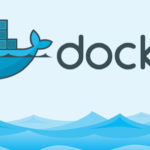Using a docker-compose.yml file versus a Dockerfile depends on the complexity of your application, the number of services it comprises, and your deployment and development requirements. Here are some scenarios where using docker-compose.yml is optimal:
- Multi-container Applications: If your application consists of multiple services, such as a web server, database, cache, and others,
docker-compose.ymlsimplifies managing and orchestrating these services together. Docker Compose allows you to define all the services and their dependencies in a single file, making it easier to deploy and manage the entire application stack. - Development Environment Setup: Docker Compose is particularly useful for setting up development environments. With a single
docker-compose.ymlfile, developers can define all the services required for development, including databases, caches, and other dependencies. This allows developers to spin up their development environment quickly and consistently across different machines. - Orchestration and Networking: Docker Compose provides built-in features for orchestrating and networking multiple containers. It allows you to define networks for communication between containers, specify dependencies between services, and configure resource constraints. This makes it easier to manage inter-service communication and ensure proper isolation and scalability.
- Testing and Continuous Integration: Docker Compose can be used to define test environments for running integration tests and end-to-end tests. By defining the test environment in a
docker-compose.ymlfile, you can ensure consistent test environments across different stages of the CI/CD pipeline. This helps in identifying and resolving issues related to environment inconsistencies. - Deployment on Single Host: For deployments on a single host or local development environment, Docker Compose is a convenient tool for orchestrating and managing containers. It simplifies the process of deploying and scaling applications by defining all the required services and configurations in a single file.
However, there are also scenarios where using a Dockerfile is more appropriate:
- Single-Container Applications: For simple applications that consist of a single container, using a Dockerfile may be sufficient. Dockerfiles allow you to define the configuration and dependencies of a single container, making them suitable for building standalone images.
- Custom Image Builds: If you need fine-grained control over the image build process, such as installing specific packages, configuring environment variables, or adding custom scripts, a Dockerfile provides more flexibility. Dockerfiles allow you to define the build steps and commands needed to create a custom image tailored to your application’s requirements.
- Base Image Customization: Dockerfiles are useful for customizing base images provided by Docker Hub or other registries. You can extend existing images, add additional layers, and customize configurations to meet your specific needs.
In summary, Docker Compose is optimal for orchestrating multi-container applications, managing development environments, and defining complex application stacks. On the other hand, Dockerfiles are more suitable for custom image builds, base image customization, and single-container applications.



